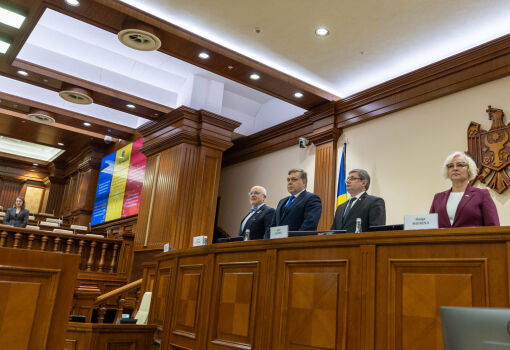
The US Senate has received a legislative initiative to consider VAT as an additional tariff. According to tax analysts, this idea, if implemented, could have consequences for companies from countries where VAT accounts for a serious share of the tax burden.
This is just part of the topical agenda of the annual tax conference held on February 19 in Chisinau. It was organized by the Moldovan and Romanian offices of Ernst &Young, one of the Big Four international companies.
The American tax system is structured differently than in the EU countries, where a large share of the tax burden falls on indirect taxes – VAT and excise taxes. In the U.S., it falls on direct taxes and to a large extent on income tax. There are also indirect taxes, on sales, for example, but they are not high. In different states the rate is 5-6%. There is no VAT in America, so the idea is to treat the European VAT as an additional tariff that American companies pay when operating in the EU. That is, a measure could be developed to counteract its VAT, which would potentially increase the tax burden.
In addition to the hot international agenda, the conference traditionally discussed the latest changes in tax policy, issues of closing 2024 and preparation of income tax returns for 2024. More details were given about innovations such as incentive capital, which is formed at the expense of net profits of the company and can be used for payments to employees. Or Stock options plan – a program through which employees and administrators of companies will be able to purchase at a discounted price or receive on a free basis a certain number of shares in the share capital, for example, shares.
As last year, the most discussed topic both at the conference and on the sidelines was transfer prices. From this year, companies are obliged to report in this context for the previous year. By March 25 this year, they have to prepare and submit the relevant information, and by June 30 this year. – transfer price dossiers.
At the moment, the business community is discussing a project on amending the order of the Ministry of Finance on the regulations for the implementation of the transfer price system. The document was adopted in 2024. There are no conceptual changes in the draft, but the technical details of the transfer pricing system are clarified. The amendments concern the form of information submission.
“In 2024, the Moldovan legislation was amended to state that transactions between affiliated Moldovan enterprises are not subject to the obligation to apply transfer prices, except for enterprises that apply a certain income tax exemption,” says Alexandru Shipitca, director of the tax department at Ernst & Young Moldova. – Also, the rules for determining the limits on transactions – over 20 million lei and 50 million lei – have been clarified. This will facilitate the work of domestic enterprises. However, the questions on how the percentage of affiliation is determined remained not fully clarified.
In the coming days, the State Tax Service will specify on the website of the agency the rules for submitting information and dossiers. As well as clarifying in what format – physical or electronic – can be submitted documentation.
Recall that fines will be imposed only if the information or dossier was not provided or was provided untimely to the STS. Other penalties for tax periods 2024-2027 will not apply.
Materials prepared by Tatyana SHIKIRLISKAYSKAYA













